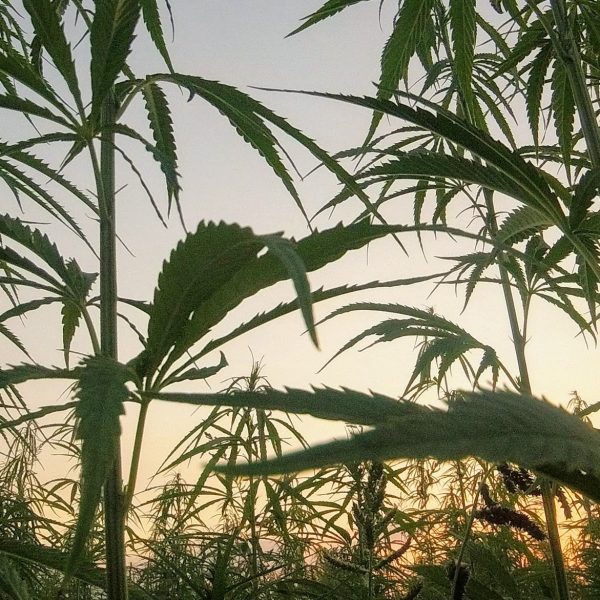13 of 15 proposed cannabis bills passed the Colorado Legislature this session. Here’s what you need to know:
The bills that passed:
- SB19-013 – Medical Marijuana Condition Opiates Prescribed For. PASSED.
- Concerning the conditions for medical marijuana use for disabling medical conditions, and, in connection therewith, adding a condition for which a physician could prescribe an opioid to the list of disabling medical conditions for medical marijuana use.
- Limitations will be imposed on a patient with a disabling medical condition who is under the agent of 18 to only consume medical marijuana in a non-smokable form when consuming it either: (1) on preschool, primary or secondary school ground where he or she is enrolled; (2) on school bus; or (3) at a school-sponsored event.
- Governor Polis is expected to sign the bill.
- SB19-218 – Sunset Medical Marijuana Program. PASSED. Sent to Governor Polis on May 10, 2019.
- This bill concerns the continuation of the medical marijuana program and implementing the recommendations contained in the 2018 sunset report by the department of regulatory agencies and making an appropriation.
- Only physicians will be able to make medical marijuana recommendations. However, medical professionals with authority to issue prescriptions will be able to make medical marijuana recommendations if they are acting within the scope of their practice.
- The state health agency will have authority to enact rules concerning medical marijuana cards. Similarly, if an individual who has a medical marijuana card is convicted of a drug crime, his or her card will be revoked.
- The roles and duties of the health care panel, which tracks the health impacts of cannabis, are expanded, and it is now required to include in its bi-yearly report all financial interests associated with the health care industry and cannabis industry.
- SB19-220 – Hemp Regulation Alignment with 2018 Federal Farm Bill. PASSED. Sent to Governor Polis on May 10, 2019.
- This bill concerns updates to the industrial hemp regulatory program administered by the commissioner of agriculture to align the program with the regulatory requirements set forth in the federal Agricultural Improvement Act of 2018 (“AIA”), and, in connection therewith, making an appropriation.
- The AIA: (1) took off hemp from schedule I of the federal Controlled Substance Act; (2) requires the United States Department of Agriculture (“USDA”) to create a scheme for the regulation of hemp; and (3) instructs states to submit their hemp regulatory scheme to the secretary of the USDA.
- SB19-224 – Sunset Regulated Marijuana. PASSED.
- Concerning the continuation of the regulated marijuana programs, and, in connection therewith, implementing the recommendations contained in the 2018 sunset report by the department of regulatory agencies and making an appropriation.
- Retail cannabis stores will be permitted to sell industrial hemp consumables.
- SB19-240 – Industrial Hemp Products Regulation. PASSED.
- Concerns regulation of commercial products containing industrial hemp, also bringing the state law in line with the Federal Farm Bill of 2018. .
- Gives authority to [DORA] to create regulations for implementing the statute, including requiring wholesale food manufacturers that makes an industrial hemp produce will pay a $300 annual registration fee to CDPHE, irrespective of the manufacturer’s gross annual sales. The statute also authorizes (but does not require) CDPHE to convene a stakeholder work group to study the regulation of industrial hemp products; the Department is tasked with inviting representatives various groups, including industrial hemp processors; marijuana processors; supplements retailers; legal experts on the sale of products containing cannabidiol and THC; organizations with specific expertise in the federal supplements regulatory framework; consumer advocates; and hemp and marijuana industry participants generally.
- Local governments will have the power to implement ordinances or resolutions that regulate industrial hemp or industrial hemp products. If an ordinance or a resolution is in conflict with state law, the state law controls.
- HB19-1028 – Medical Marijuana Condition Autism. PASSED. Signed into law April 2, 2019
- The bill will give a patient with an autism spectrum disorder a statutory right to use medical marijuana, by adding ASD to the list of conditions for medical marijuana use for disabling medical conditions.
- A patient will be required to be diagnosed with an autism spectrum disorder by a primary care physician, a physician specialized in autism spectrum disorder, or licensed mental health provided performing within the scope of their practice.
- The bill also urges the State Board of health in the Colorado Department of Public Health and Environment to focus medical marijuana health research grants on scientific research that studies the effectiveness and safety of administering medical marijuana for ovarian cancer, dementia, pediatric conditions, autism spectrum disorder, and other conditions.
- HB19-1031 – Child Patient More Than One Primary Caregiver. PASSED. Signed into law [date]
- Concerning allowing each parental guardian to serve as a minor medical marijuana patient’s primary caregiver, and, in connection therewith, making an appropriation.
- Presently, the law in Colorado restricts a medical marijuana patient to one primary caregiver at a time; however, the bill creates an exception.
- Under the bill, a parent or guardian will be able to act as a primary caregiver for a medical marijuana patient who is less than 18 years old may.
- In the case of a medical marijuana patient who is under the juvenile court’s authority, the primary caregiver will be ascertain by the judge who is in charge of the case.
- HB19-1055 – Public School Cap Construction Financial Assistance. PASSED. Sent to Governor Polis for signature May 7, 2019
- This bill increases the marijuana retail excise tax revenue credited to the public school capital construction assistance fund.
- The bill will increase the state and school district annual spending for K-12 capital construction and redirects marijuana excise tax revenue to the Building Excellent Schools Today (“BEST”) program from the Public School Fund. Additionally, the bill will allocate money to encourage the enactment of full-day kindergarten.
- HB19-1090 – Publicly Licensed Marijuana Companies. PASSED.
- Would be effective for applications made on or after November 1, 2019.
- Concerning measures to allow greater investment flexibility in ownership of marijuana businesses, permitting more than 15 out-of-state residents to hold specified ownership interests in the businesses.
- Effectively, this bill removes the prohibitions on publicly traded companies possessing a cannabis business license.
- The bill also eliminates the concepts of direct beneficial owner and the related requirements, creating new ownership notions of controlling beneficial owners, indirect financial interest holders, and passive beneficial owners.
- The state licensing authority will have the power to impose laws concerning the framework of, declaration of, prerequisites for, and suitability for the new ownership concepts.
- HB19-1230 – Marijuana Hospitality Establishments. PASSED.
- Certain provisions go into effect August 2, 2019, provided there is no referendum measure. Other provisions take effect January 1, 2020.
- Concerning marijuana hospitality establishments, and, in connection therewith, making an appropriation.
- Like wine or beer tasting rooms at wineries or brewery, individuals will be able to convene at a certain location to consume marijuana and marijuana products on that particular site.
- The bill will create two social venues: (1) lawful hospitality establishment for cannabis—where individuals must bring their own marijuana or marijuana products to consume because marijuana sales are prohibited at the establishment; and (2) retail cannabis hospitality and sales establishments—where individuals may purchase marijuana or marijuana products from licensed marijuana growers and consume them on the premises.
- Also, social venues (like restaurants, hotels, coffee shops, book stores, spas, and others) will be able to apply for a social pot use permit to include cannabis consumption spaces at their locations; however, they will not be permitted to have both alcohol and cannabis on site.
- Local governments will still need to opt in to the program.
- HB19-1234 – Regulated Marijuana Delivery. PASSED. (Passed third reading.)
- Concerning allowing delivery of regulated marijuana by regulated marijuana sellers, and, in connection therewith, making an appropriation.
- Cannabis delivery permits will be available for: (1) licensed medical marijuana centers and transporters; (2) licensed retail marijuana stores and transporters that permit centers, stores, and transporters to deliver medical marijuana, medical marijuana-infused products, retail marijuana, and retail marijuana products to customers.
- The state licensing authority will have the power to implement laws on the commercial pot delivery service.
- Delivery permits will be valid for one year and available for renewal.
- An additional charge of one dollar will be calculated into each delivery, and the money will be pass on to either: (1) the city where the store or center resides; or (2) the county, if the center or store is located in an unincorporated area, for law enforcement departments to use to pay for costs connected to cannabis enforcement.
- The bill will furnish safeguards against criminal prosecution for individuals who deliver cannabis.
- Cannabis deliveries will only be permitted to be made to private residence and will be restricted to one per day. Deliveries to college campuses will be strictly forbidden.
- Local governments will have to vote to permit cannabis delivery in their jurisdiction.
- The bill will require vendor training programs to incorporate cannabis delivery training.
- HB19-1311 – Institute of Cannabis Research Role and Mission. PASSED. Sent to Gov. Polis May 13, 2019.
- Concerning the creation of Institute of Cannabis Research at Colorado State University, Pueblo.
- A governing board will oversee the Institute to ensure its mission is being carried out. The Institute will have additional guidance from a director whose responsibilities have been set by statute, and will have to administer studies related to cannabis and publicly publish the results of the studies.
The two bills that didn’t pass: Tandem DUI and Firearms rights
- HB19-1146 – Tandem DUI Per Se. WITHDRAWN BY SPONSORS.
- Concerning the offense of tandem DUI per se.
- The offense of tandem DUI per se would have been added as a new traffic offense.
- A tandem DUI per se would have been an offense if a police officer had evidence to suspect that a driver had consumed alcohol or drugs because the driver was considerably unable to drive a car and had a quantifiable sum of a drug in his or her blood or oral fluid.
- The offense of tandem DUI per se would have been penalized the same way as a DUI under Colorado law.
- The bill would have repealed the five nanogram THC minimum for the speculation that a driver is under the effect of cannabis.
SB19-093 – Firearms Rights of Medical Marijuana Users. FAILED.
- Had it passed, this bill would have regulated firearms possession by persons who lawfully use medical marijuana. An individual would have been permitted to carry a firearm if his or her previous conviction was for possessing or using marijuana that was lawfully possessed or used in accordance with the constitution of Colorado.
- The department of public safety would have been forbidden from sharing confidential information concerning the medical marijuana registry with law enforcement department for the purpose of performing background checks associated with the transfer of firearms.








